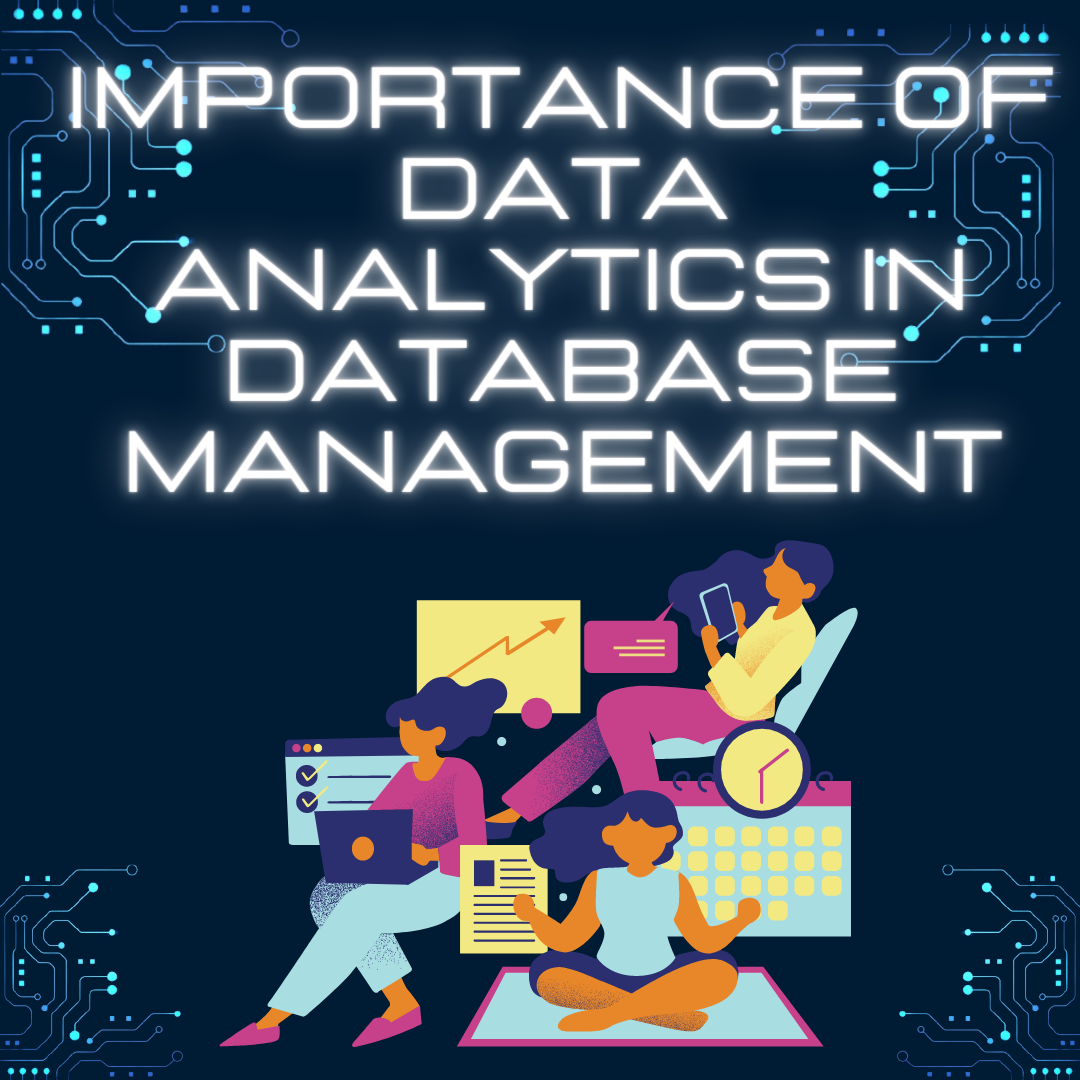Importance of data analytics in database management
Business Tip, 01 May 2023

Database management systems (DBMS) are the backbone of modern businesses. With advancements in technology and the explosion of data, managing databases has become a challenge for businesses of all sizes. This is where data analytics comes into play. Data analytics helps companies to understand their data better and make informed decisions.
Data analytics involves examining, transforming, and modeling data to uncover helpful information and insights. The insights derived from data analytics can help organizations make better decisions, improve their operations, and drive business growth.
The importance of data analytics in database management systems in 12 points:
- Improved decision-making: Data analytics provides insights that help organizations make informed decisions. By analyzing data, organizations can identify patterns and trends that inform decisions about new products, services, or marketing strategies.
- Increased efficiency: By analyzing data, organizations can identify inefficiencies and make data-driven decisions to improve them. This can result in cost savings and increased efficiency.
- Better customer insights: Data analytics can help organizations better understand customers, behavior and preferences. This can lead to more effective marketing strategies and better customer experiences.
- Competitive advantage: Organizations that use data analytics to inform their decision-making have a competitive advantage over those that do not. Organizations can improve their bottom line by using data to optimize their operations and gain a competitive edge.
- Improved risk management: Data analytics can help organizations identify and mitigate fraud or cybersecurity threats. By analyzing data, organizations can detect anomalies and take action to prevent them from becoming more significant problems.
- Personalization: By analyzing customer data, organizations can personalize their products and services to better meet individual customers' needs. This can result in higher customer satisfaction and loyalty.
- Improved supply chain management: Data analytics can help organizations optimize their supply chain by identifying inefficiencies and opportunities for improvement. This can result in cost savings and increased efficiency.
- Real-time insights: Data analytics can provide organizations with real-time insights into their operations, allowing them to make quick decisions and respond to changes in the market.
- Improved forecasting: By analyzing historical data, organizations can make more accurate predictions about future trends and events. This can help them plan for the future and make better decisions.
- Better resource allocation: Data analytics can help organizations allocate their resources more effectively. By analyzing data, organizations can identify areas that require more resources and sites where resources can be reallocated to improve efficiency.
- Improved customer retention: By analyzing customer data, organizations can identify customers at risk of leaving and take action to retain them. This can result in increased customer loyalty and revenue.
- Improved product development: Data analytics can help organizations identify new product and service opportunities. By analyzing customer data and market trends, organizations can develop new products that better meet the needs of their customers.
In conclusion, data analytics plays a vital role in database management systems. By providing insights into customer behavior, market trends, and operations, data analytics can help organizations make informed decisions, improve their operations, and drive growth. As the digital landscape continues to evolve, the influence of data analytics will only grow, making it a crucial component of any successful organization.
We appreciate your time in reading our blog! At Inspirito, we’re passionate about
providing high-quality back office and customer support services delivered digitally. Our
services enable businesses to streamline operations and concentrate on their core
competencies.
Please get in touch if you want to learn more about how we can assist your Business.
Our team will gladly answer any questions and provide a solution tailored to your
requirements.



